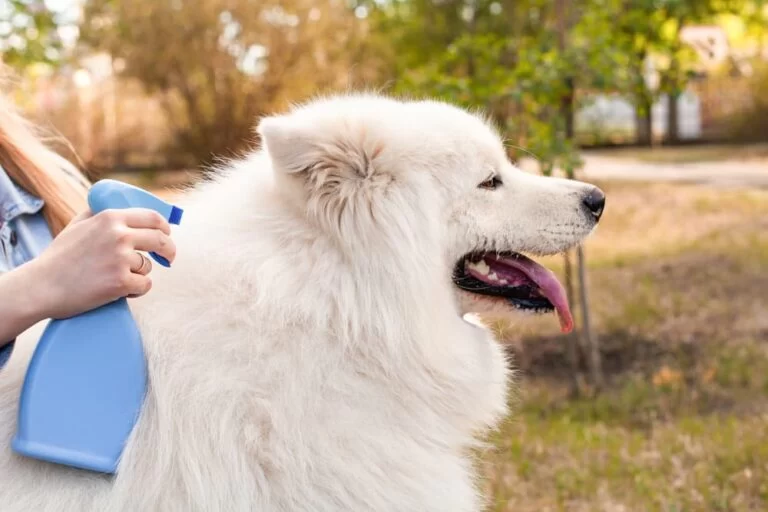- Understanding-Flea-Infestation-and-Its-Impact-on-Dogs
- Why-Natural-Flea-Remedies-Are-Worth-Considering
- Effective-Natural-Flea-Remedies-for-Dogs
- Holistic-Approach-to-Flea-Prevention
- Real-Life-Experience-with-Natural-Flea-Control
- Choosing-the-Best-Natural-Flea-Solutions-for-Your-Dog
1. Understanding Flea Infestation and Its Impact on Dogs
Fleas are a common and persistent problem for dogs, causing more than just itching and discomfort. These tiny parasites can trigger allergic reactions, skin infections, and even transmit tapeworms or other diseases. The constant scratching can lead to hair loss and secondary bacterial infections, impacting your dog’s overall well-being.
Recognizing flea infestation early is vital. Signs often include excessive scratching, visible fleas or flea dirt, red irritated skin, and restlessness. Addressing flea problems quickly not only alleviates your dog's discomfort but also prevents a home infestation.
2. Why Natural Flea Remedies Are Worth Considering
2.1 Safety for Dogs and Humans
Many conventional flea treatments contain harsh chemicals that may cause side effects or allergic reactions, especially in sensitive dogs or households with children. Natural flea remedies provide a gentler alternative that prioritizes your dog’s health without sacrificing effectiveness.
2.2 Environmental Considerations
Natural flea control methods tend to be more environmentally friendly, reducing harmful chemical exposure in your home and garden. This approach aligns with a holistic lifestyle that values sustainability and safety.
2.3 Supporting Overall Dog Health
Natural remedies often incorporate ingredients that benefit your dog’s skin and coat while repelling fleas. This dual effect promotes healthier skin and a shinier coat, enhancing your dog’s comfort and appearance.
3. Effective Natural Flea Remedies for Dogs
3.1 Essential Oils with Caution
Some essential oils, like lavender, cedarwood, and peppermint, have flea-repelling properties. When properly diluted and applied under guidance, they can serve as effective natural repellents. However, essential oils must be used carefully as some oils are toxic to dogs.
3.2 Apple Cider Vinegar
Apple cider vinegar, diluted with water, is a popular natural spray that changes the pH of your dog’s skin, making it less attractive to fleas. Regular use can help deter fleas while soothing irritated skin.
3.3 Diatomaceous Earth
Food-grade diatomaceous earth is a natural powder that dehydrates and kills fleas on contact. It can be safely applied to your dog's coat and home environment, but care should be taken to avoid inhalation of the powder.
3.4 Herbal Flea Collars and Sprays
Herbal flea collars infused with natural oils and sprays containing neem or eucalyptus provide continuous flea prevention. These products combine safety with ease of use, making them a convenient option for many dog owners.
4. Holistic Approach to Flea Prevention
4.1 Regular Grooming and Inspection
Daily brushing and combing with a fine-toothed flea comb help detect and remove fleas early. This practice is the frontline defense in flea control and strengthens the bond between you and your dog.
4.2 Maintaining a Clean Environment
Vacuuming floors, washing bedding, and treating your yard are crucial to interrupt the flea life cycle. Natural environmental treatments, such as nematodes that prey on flea larvae, can be effective and eco-friendly.
4.3 Nutritional Support
Feeding your dog a balanced diet rich in omega fatty acids supports skin health and natural resistance to pests. Supplements like brewer’s yeast are also sometimes used to discourage fleas from biting.
5. Real-Life Experience with Natural Flea Control
Take the case of Luna, a golden retriever whose owners were concerned about the chemicals in conventional flea treatments. After consulting with Hidden Brook Veterinary, they switched to a regimen combining diatomaceous earth dusting, apple cider vinegar spray, and regular grooming. Within a few weeks, Luna’s flea problem was under control, and her skin condition improved noticeably without any side effects.
Another story is of Rocky, a terrier mix who suffered flea allergies. His owners used herbal flea collars alongside environmental natural treatments recommended by Hidden Brook Veterinary. Rocky’s itching reduced dramatically, proving that natural flea remedies can be both effective and safe for sensitive dogs.
6. Choosing the Best Natural Flea Solutions for Your Dog
6.1 Consult a Veterinary Professional
Every dog is unique. Before starting any flea prevention or treatment, seek advice from professionals such as Hidden Brook Veterinary to tailor the best natural solutions to your dog’s specific needs.
6.2 Monitor for Reactions
Observe your dog closely when using natural remedies to ensure there are no adverse reactions. Stop use immediately if irritation occurs and consult your vet.
6.3 Combine Methods for Best Results
Natural flea prevention works best when combined: grooming, environmental care, and topical treatments create a comprehensive defense against fleas.
Ultimately, natural flea remedies and prevention methods offer a balanced approach that protects your dog safely and sustainably. With proper care and the right products, your dog can enjoy a flea-free life while maintaining optimal health.












